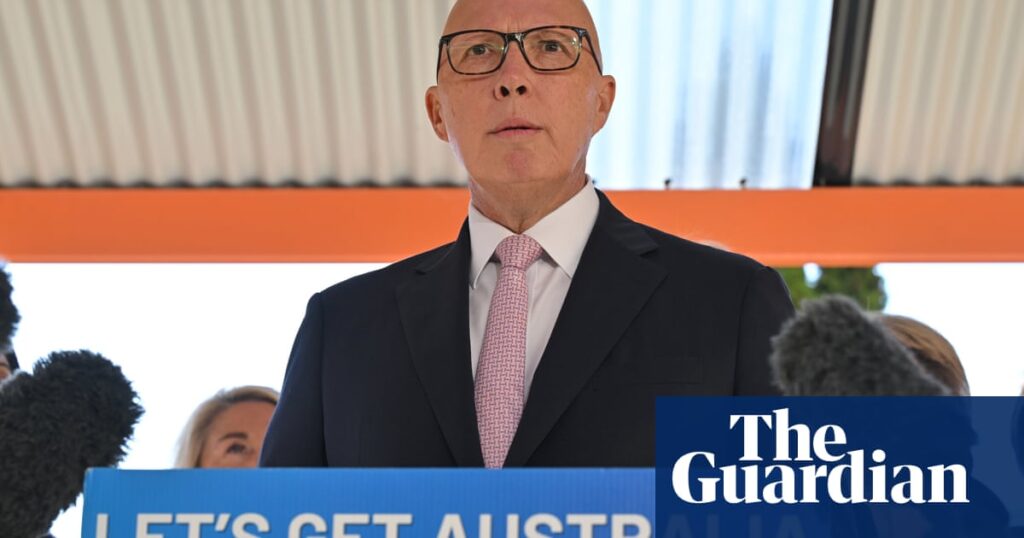
The federal opposition in Australia is signaling a significant shift in its approach to immigration, moving away from the stringent rhetoric of the Peter Dutton era. Paul Scarr, the newly appointed shadow immigration minister, has announced a more empathetic stance that highlights the positive contributions of migrants to the nation. This marks a departure from the previous hardline policies and language that characterized the Coalition’s immigration strategy.
Scarr, who also serves as the shadow minister for multicultural affairs, expressed his concerns to Guardian Australia, describing it as a “profound tragedy” that Chinese, Indian, and other diaspora communities have distanced themselves from the Liberal Party in recent elections. He believes these communities’ values should naturally align with the party’s core principles.
Context and Background
The announcement comes as political analysts like Kos Samaras, a former Labor strategist, suggest that the Coalition must abandon outdated approaches to multicultural Australia to regain support. Samaras notes that the Coalition has developed a reputation for being unwelcoming to recent migrants, which has contributed to their electoral challenges.
Under Dutton’s leadership, the Coalition prioritized immigration cuts, linking the post-pandemic influx to housing supply and affordability issues. However, with Sussan Ley now leading the Liberals, the party is reassessing its agenda following an electoral defeat. Scarr’s commitment to a new tone in discussing immigration represents a significant pivot from Dutton’s controversial policies.
Shifting the Tone
Throughout his tenure, Dutton was known for his inflammatory remarks, including calls for a temporary ban on people from Gaza and proposals for referendums on deporting dual citizens involved in serious crimes. Scarr, however, emphasizes the importance of empathy in the immigration debate.
“One of the things I am passionate about is getting the tone of discussion right – I think that is of critical importance,” Scarr says. “And any discussion of immigration must proceed, in my view, on the basis of the contribution that’s been made to this country by so many people who have come to this country as migrants.”
Scarr’s dedication to multiculturalism is rooted in his pre-political career as a lawyer and his experiences working internationally. He acknowledges the damage caused by “loose”, “harsh”, or “clumsy” comments from politicians and stresses the need for his colleagues to be mindful of their language.
Electoral Implications
Multicultural communities, particularly Chinese voters, have shifted away from the Coalition in recent elections, favoring Labor in key electorates. Scarr sees this as a disconnect that needs addressing, citing shared values like reward for effort and individual freedoms as common ground between these communities and the Liberal Party.
Yun Jiang from the University of Technology Sydney’s Australia-China Relations Institute notes the historical appeal of the Liberal Party to Chinese migrants, who often arrive on skills visas and start small businesses. However, she warns that regaining their support will require a careful recalibration of the party’s language, especially regarding China.
“They [the Coalition] would need to be much more careful about their language around the threat of China, and especially on Chinese [people] being portrayed as spies or nefarious actors influencing the Australian political landscape,” Jiang explains.
Looking Forward
According to Samaras, rebuilding trust with multicultural communities will be a long-term endeavor for the Liberals. The party’s diminished presence in parliament and the rapid growth of Chinese and Indian diasporas underscore the electoral significance of this task.
Scarr acknowledges the challenge but remains committed to changing perceptions. “Every single day between now and election day, and in fact, every single day after I was elected, I do everything I can to change and recalibrate those perspectives,” he asserts.
The Coalition’s shift in immigration rhetoric represents a broader effort to reconnect with diverse communities across Australia. As the party navigates this transition, the emphasis on empathy and positive contributions may prove crucial in reshaping its image and electoral fortunes.






